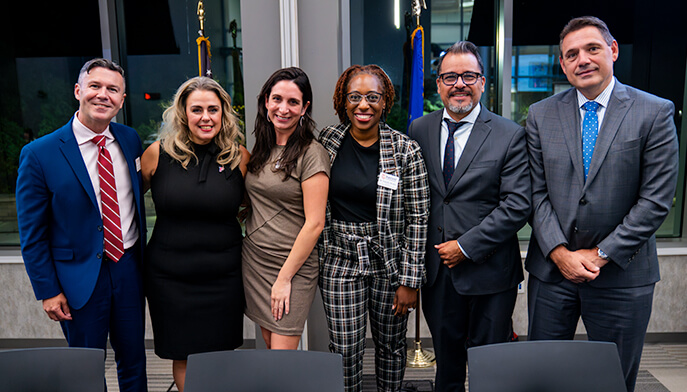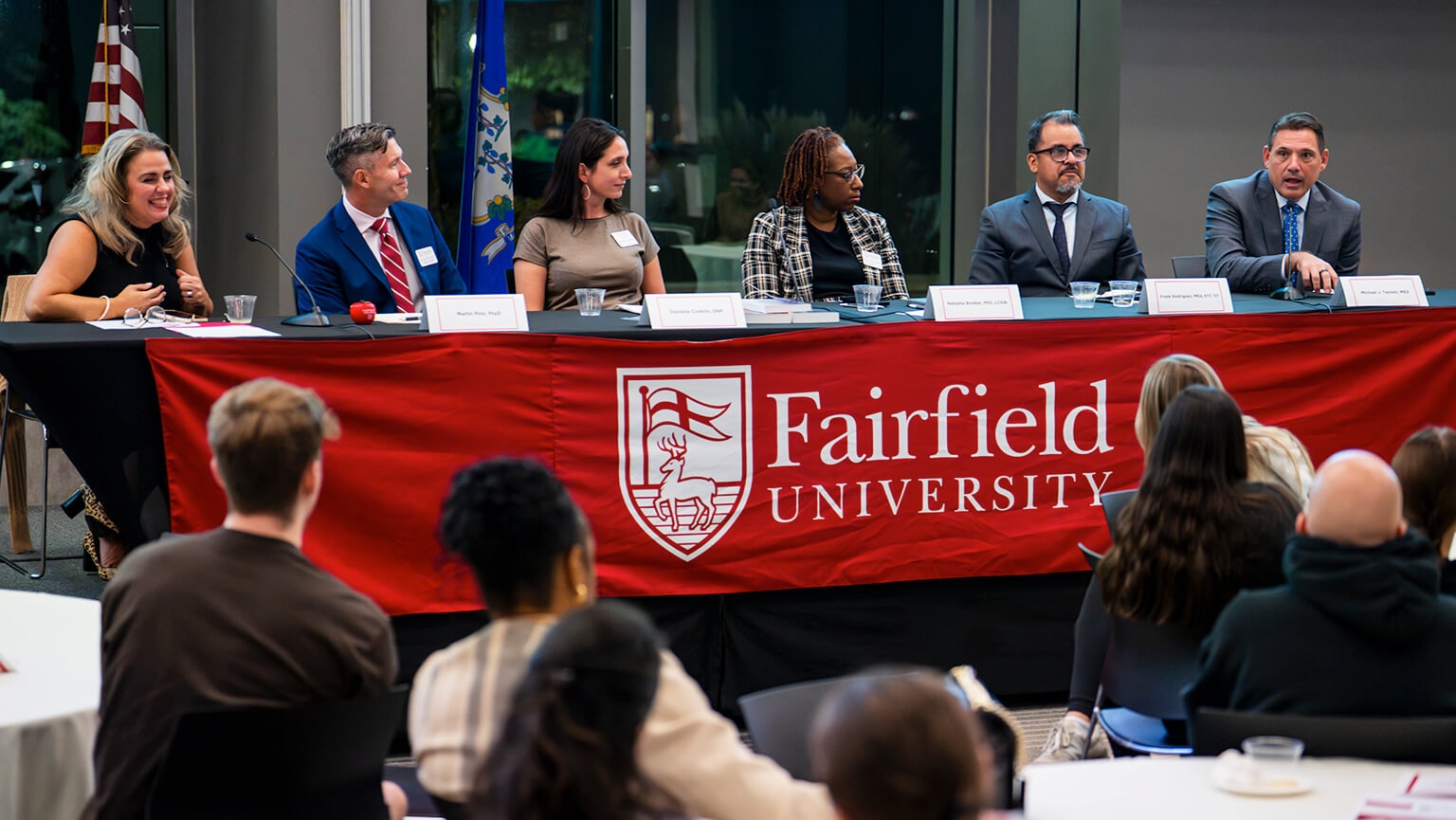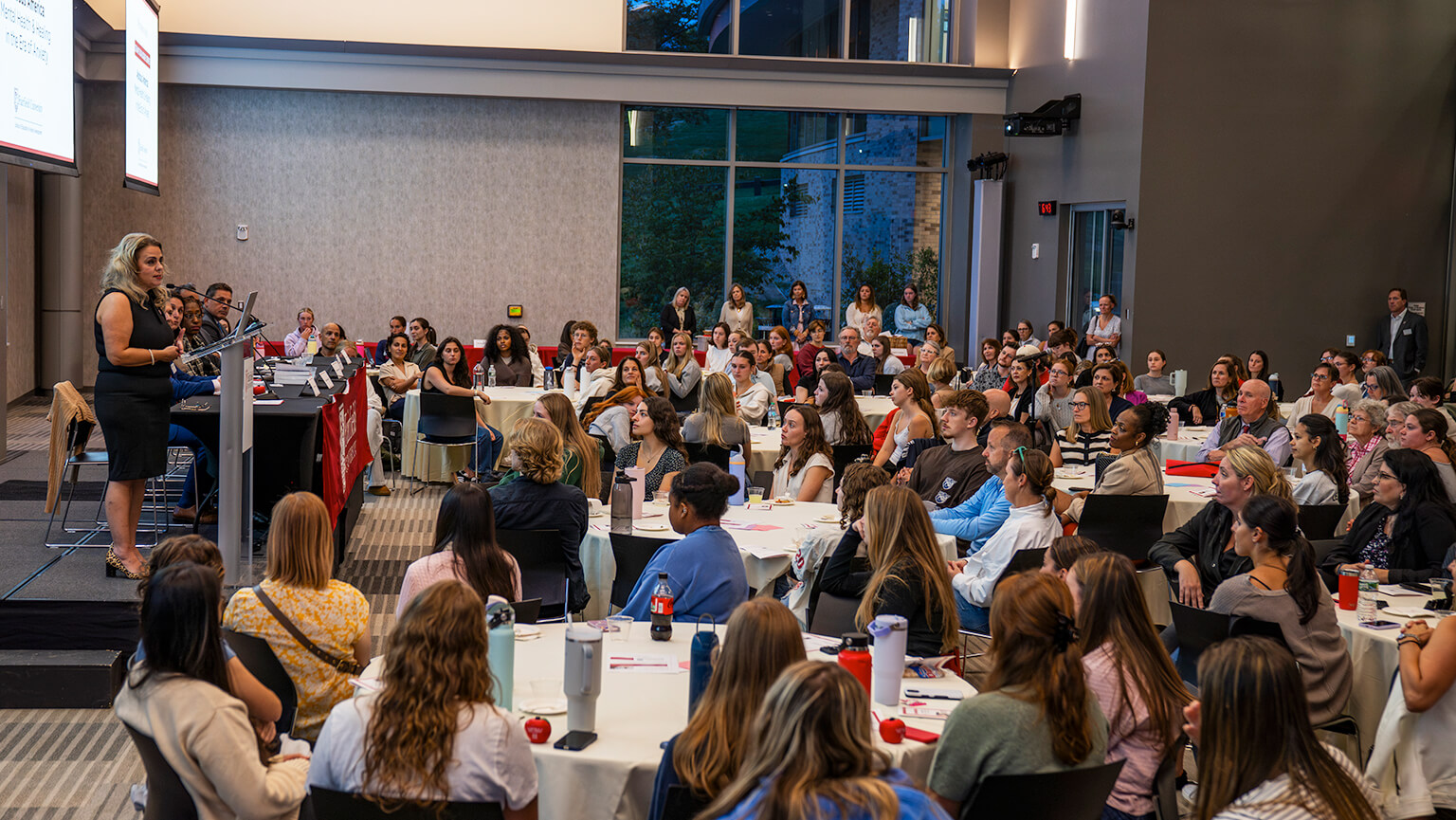
Last Fall, Fairfield University’s School of Education and Human Development hosted a Dean’s Dialogue Series panel discussion titled Anxious America: Mental Health & Healing in the Era of Anxiety.
Led by Dean Evelyn Bilias Lolis, PhD, the well-attended community event brought together educators, healthcare professionals, and community leaders for a cross-disciplinary conversation on one of the most prevalent issues of our time: the rise of anxiety in American life.
The panel featured Dean Lolis; Natasha Booker, PhD, LCSW, clinical social worker and private practitioner; Danielle Conklin, DNP, psychiatric mental health nurse practitioner; Martin Pino, PsyD, clinical psychologist; Frank Rodriguez, MEd, principal of Strawberry Hill Interdistrict Public Magnet School; and Michael J. Testani, MEd, superintendent of Fairfield Public Schools.
Provost Christine Siegel, PhD opened the evening by citing a statistic from a June 2025 CDC report: 21 percent of children ages 3–17 are diagnosed with a mental, emotional, or behavioral condition, with anxiety leading the list. Against the backdrop of cultural unrest, pandemic aftershocks, social media saturation, and constant performance pressures, panelists urged the audience to consider not just the numbers but the lived realities behind them.
At the heart of the dialogue was a recognition that anxiety is not simply an individual problem but a shared societal challenge that demands collective care. Dean Lolis framed this within Fairfield’s Jesuit mission: “As a Jesuit institution, we are called to seek the truth, not in fragments, not in comfortable disguises, but in its fullness, in its unvarnished form. Then once we face the truth, we are called to hold it with understanding and to respond not narrowly but holistically.”





